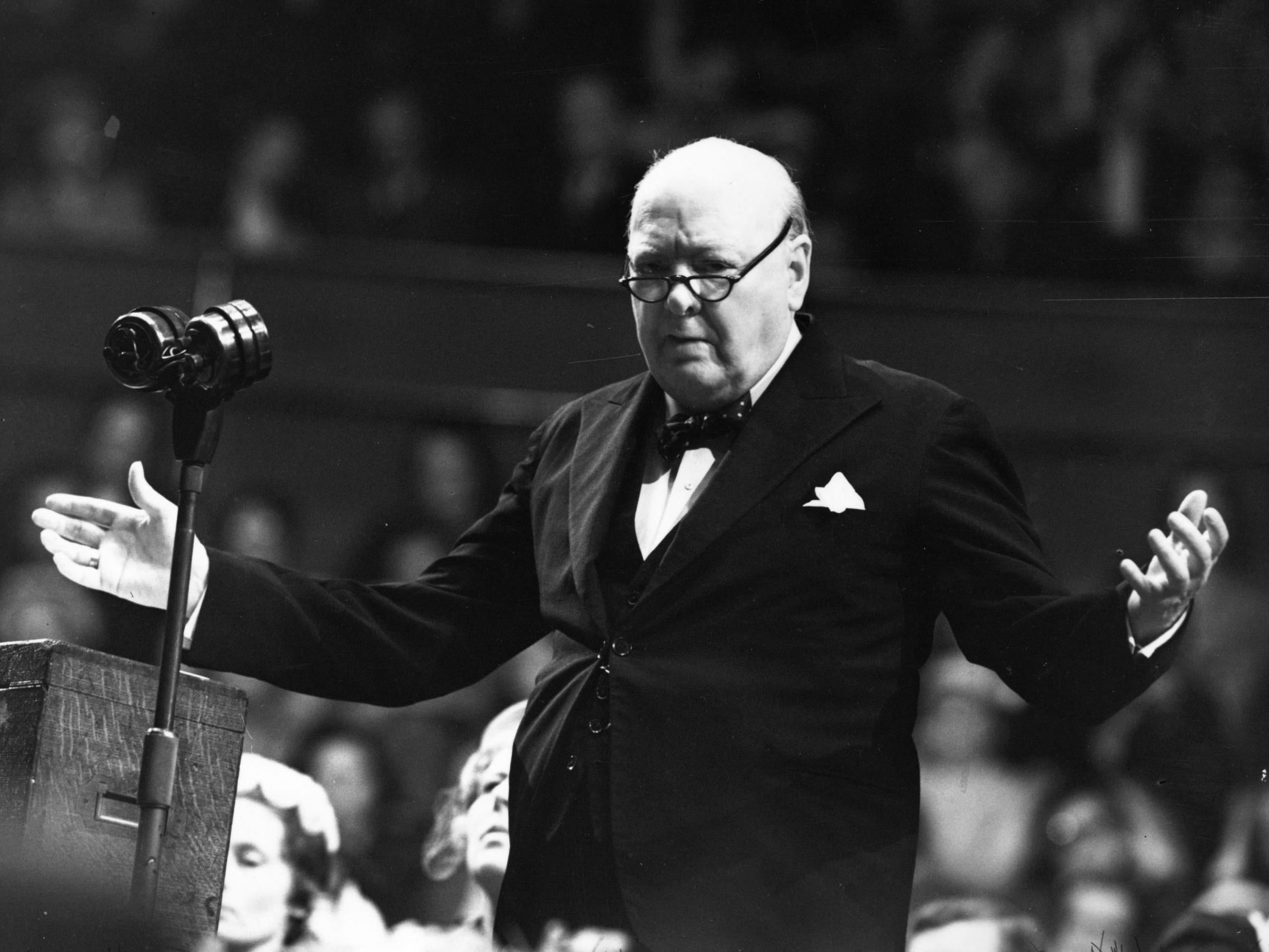From Churchill to Blair, how Westminster has dealt with a prime minister falling ill
Boris Johnson’s admission to hospital while resident of 10 Downing Street is certainly uncommon, but far from unprecedented, writes Sean O'Grady


A prime minister incapacitated, his closest lieutenant and heir apparent himself ill and unable to take over, confusion at the heart of the British government, a cover-up of the premier’s true condition?
Well, it has happened, albeit in rather easier times than these, and it demonstrates both how administrative life goes on, and how often Whitehall and Westminster have faced such challenges before. More often than not the machine has muddled through, which is perhaps reassurance of sorts.
The story is Winston Churchill’s and it begins on the evening of Tuesday 23 June 1953. A few weeks after the coronation of the Queen her first prime minister was enjoying his Indian summer as a peacetime premier. He and colleagues had been entertaining the prime minister of Italy and his delegation in the usual style. At the end of the evening some noticed that the prime minister was not talking in his usual expansive manner, and his left arm felt limp. Some at the party put it down to the generous hospitality but when Churchill’s doctor eventually attended him in the morning it was clear that the old man (79 years of age) had suffered a major stroke. This was on top of a series of cardiac “events” stretching back to 1941, and his doctor, Lord Moran, thought he would die by the weekend.
Naturally, thoughts turned to the man who had long been assumed to be his successor, Anthony Eden, the foreign secretary. Yet Eden himself had had that very day what was supposed to be routine surgery to remove some gallstones. Unfortunately, as it was later explained to Eden in layman’s terms, “the knife slipped” and Eden’s bile flowed into his body, poisoning him, and he also became seriously ill. There then followed a bit of a tussle about who would in fact take over. The chancellor, Rab Butler, rather like Dominic Raab now, chaired various cabinet committees but Churchill actually chaired one cabinet while suffering from his stroke. Churchill also cooked up a scheme to lend the premiership temporarily to Tory grandee Lord Salisbury, someone who was not a real contender to take over long-term. One insider wrote at the time of Churchill: “he is definitely weaker physically and fell down today. In fact he cannot really walk at all and his swallowing is bad. However he is very cheerful and his courage is remarkable – he seems completely detached in a funny sort of way”.
In the event, Churchill, a man who must have possessed a strong constitution, made a remarkable recovery.
The public never learned about how sick their prime minister has become because those around Churchill organised a remarkable and blatant policy of misinformation – on Churchill’s own instructions.
After the seriousness of the stroke was realised Churchill’s physicians framed a press release that was (relatively) candid. The draft included a reference, as explicit as they dared, to “a disturbance in the cerebral circulation” and, thus, “attacks of giddiness”. Churchill’s spin doctors took a knife to that, and the press and public were eventually (mis)informed as follows:
“The prime minister has had no respite for a long time from his very arduous duties and is in need of complete rest. We have therefore advised him to abandon his journey to Bermuda [for a summit] and to lighten his duties for at least a month.”
They followed this up by persuading the press barons of the day not to run the story about Churchill’s illness. The truth about Churchill’s secret strokes didn’t come out for another thirty years when the official papers were released.
It was not the first or last such example of prime ministerial frailty. Thanks to that botched gall bladder procedure, Eden wasn’t around to seize power from a stricken Churchill; and the subsequent complications on Eden’s health may have impaired his judgements during the Suez crisis that destroyed his own premiership in 1956.
Harold Macmillan was the last premier to quit due to ill health back in 1963, though his suspected prostate cancer turned out to be non-life-threatening (he lived until 1986). Tony Blair’s heart murmur in 2003 turned out to be a similarly temporary inconvenience, despite intense media speculation about his future.
In fact the lesson of history so far as purely physical problems goes is that the machinery of government grinds on and the political machinations about real or potential succession do the same. The real damage comes with a longer-term, more subtle, deterioration in mental faculties. By the time Ramsay Macdonald had to retire in the 1930s for example he was barely able to function in the job of prime minister. In their last year or so in Downing Street both Harold Wilson and Margaret Thatcher were said by some to be starting to suffer from the dementia that would eventually shred the formidable intelligence and memory they once possessed.
Every case of prime ministerial incapacity is sui generis, and drawing many lessons is difficult. The only thing that can be confidently said is that there is no sure way in a parliamentary system of easily managing such personal political crises, but that they can, nonetheless, be overcome.
Join our commenting forum
Join thought-provoking conversations, follow other Independent readers and see their replies
Comments